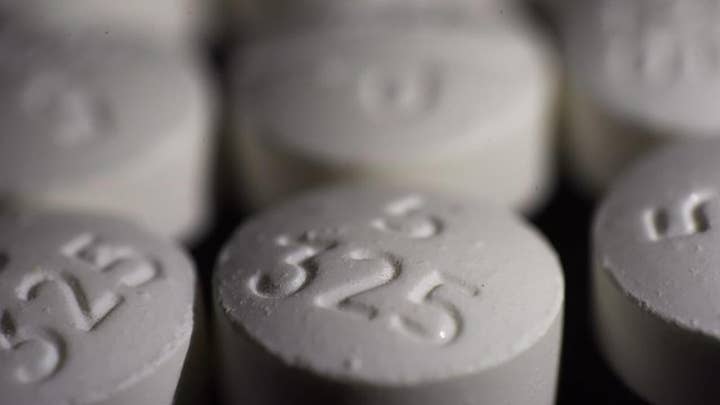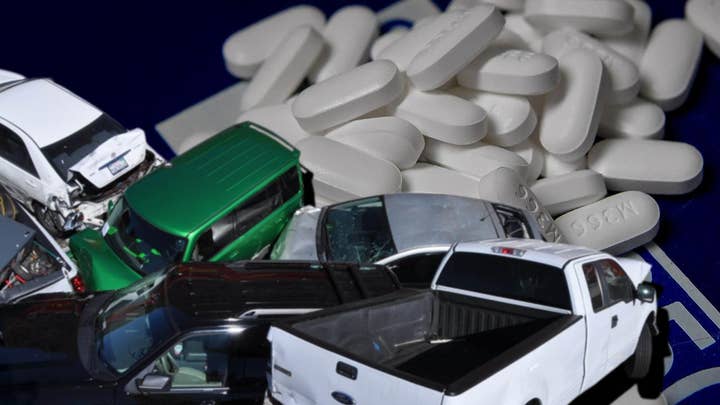Trump escalates feud with media ahead of White House Correspondents' Dinner
The president has reportedly told administration officials to boycott the annual event. Trump is skipping the dinner for the third consecutive year and holding a rally instead.
President Trump on Wednesday touted his administration’s success in combating the opioid epidemic in the United States, while acknowledging that there is still more work to do.
Speaking at the Rx Drug Abuse and Heroin Summit in Atlanta, the president’s remarks noted the steps his administration has taken to battle the epidemic, but also veered into his frequent critique of drugs coming over the U.S.’s southern border into the country.
“We will not solve this epidemic overnight,” Trump said to an audience of elected leaders and health and law enforcement officials gathered in the Georgia capital. “But we will never stop until the job is done.”
Trump added: “We will succeed and we’re making tremendous progress.”
The president has declared opioids a national health emergency, while First Lady Melania Trump, who also spoke at the conference, focuses on the issue in her national "Be Best" child welfare campaign.
“I’m proud of this administration’s historic progress,” the first lady said before introducing her husband.
Opioid abuse claimed a record nearly 48,000 American lives in 2017. An estimated 2 million people are addicted to the drugs, which include both legal prescription pain medications and illegal drugs like heroin.
There have been signs of progress.The number of prescriptions for opioid painkillers filled in the U.S. fell substantially in 2017. Still, it's unclear whether the opioid problem is on the decline.
Kellyanne Conway, one of Trump's top advisers, said at a White House gaggle Wednesday that Twitter and Google have helped the administration combat the opioid and drug crisis. So far, the administration has helped collect 3.7 million pounds of unused and expired medications — enough to fill seven Air Force One planes, she said.
The next "National Prescription Drug Take Back Day" is Saturday.
CLICK HERE TO GET THE FOX NEWS APP
Conway said she met Tuesday with drug enforcement and officials from Google, which is helping the administration by displaying links to about 5,500 locations where people can drop off unused and expired pills.
Trump also hit Mexico for allowing heroin and other opioids to come into the country, and promised that his much-touted border wall will help stem the flow of drugs into the U.S.
“Heroin alone kills 300 Americans, 90 percent of which enter the Southern Border,” Trump said.
While it’s true that the vast majority of heroin in the U.S. comes from Mexico, virtually all of it makes its way into the country through legal ports of entry and not by traffickers sneaking it across the border unnoticed.
“A small percentage of all heroin seized by CBP along the land border was between Ports of Entry (POEs),” the Drug Enforcement Administration said in a 2018 report.
There is also contention over Trump’s claims of progress in combating the opioid epidemic.
Keith Humphreys, a drug policy adviser in the George W. Bush and Barack Obama administrations who now is at Stanford University, said some states are making progress in combating opioids abuse, but not because of Trump's actions. Humphreys cited Rhode Island and Vermont as examples. He also said some states have regressed.
Humphreys said the president's declaration of opioids addiction as a public health emergency in 2017 failed to translate into significant concrete action. Members of Congress, he said, "figured out they were going to have to do it themselves and they did."
The Associated Press contributed to this report.
















































